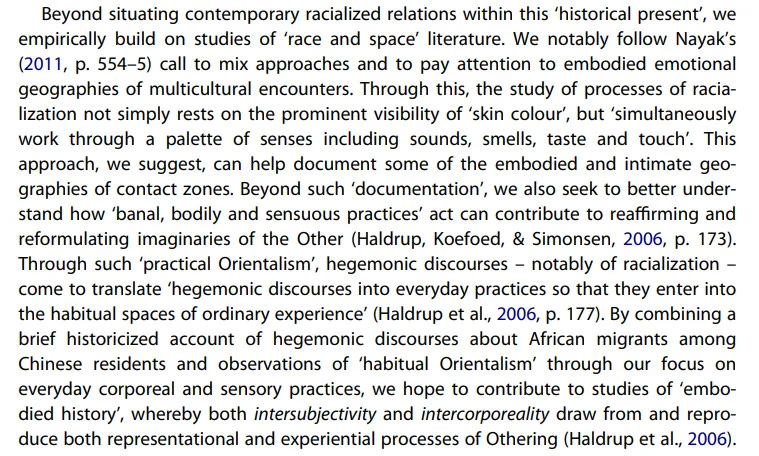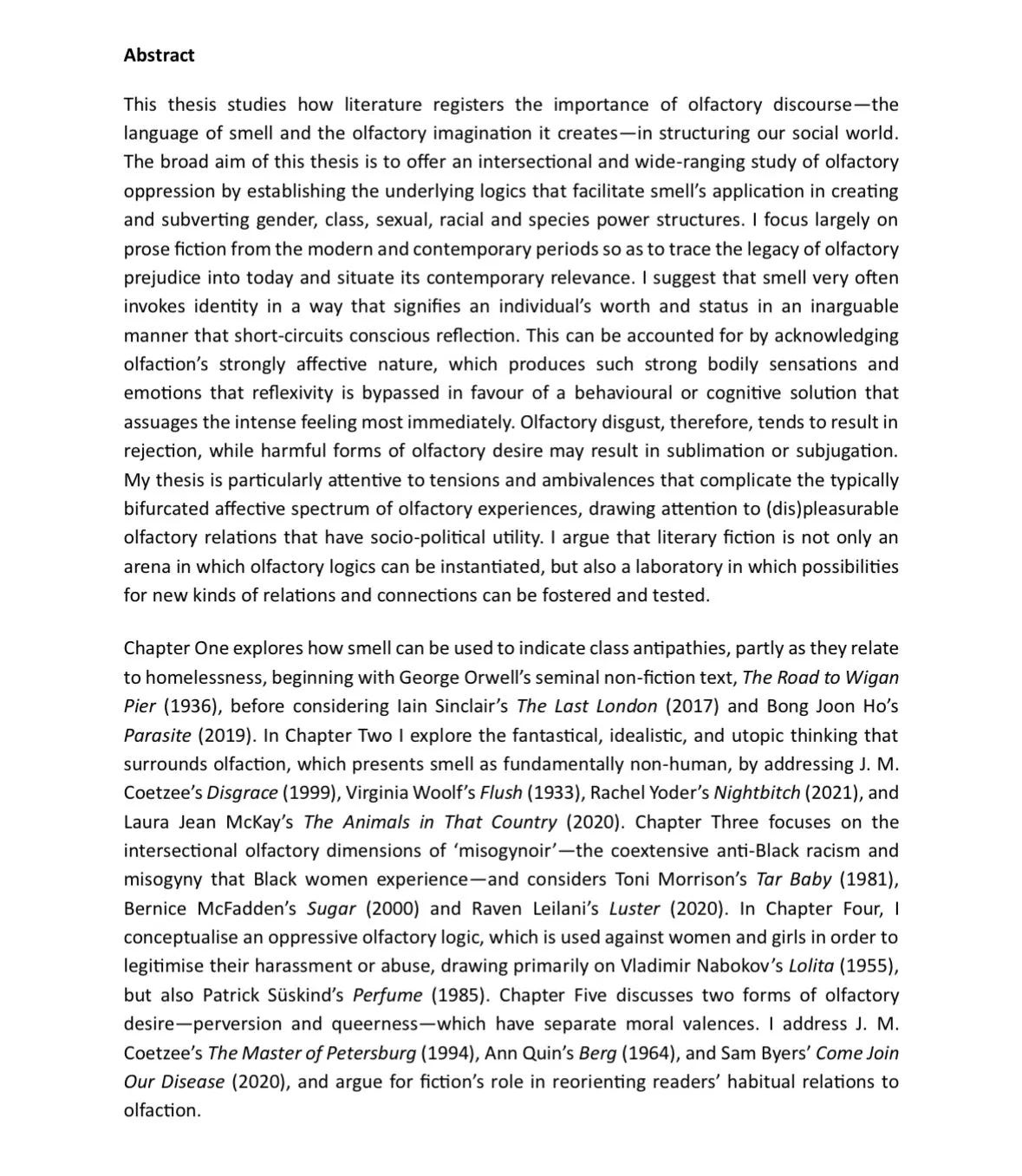But is it anti-intellectualism, really?
In our weekend essay, Ella Dorn on the online controversy over a Cambridge PhD - and why it's quite reasonable to be disillusioned by the state of modern academia.
To the surprise of few, the fight to make universities centres of free and open discussion of ideas has again been to the fore throughout 2024.
As the government appears to retreat from legislation intended to protect free speech on campus, so opponents of the freedom to explore ideas seem emboldened. The ruction at Oxford Union last week - over the treatment of speakers opposing the idea that Israel is an apartheid state responsible for genocide - is the latest incident to prompt claims and counter-claims over the right to freely express ideas.
Over 300 academics have now signed an open letter decrying the 'inflammatory rhetoric, aggressive behaviour and intimidation'. There is certainly no free-speech defence of intimidation. But we should also recall that concerns from vulnerable groups about how free speech might harm student welfare were used as the central justification for halting the implementation of the Higher Education (Freedom of Speech) Act. We should be on guard against all arguments used to undermine free speech. Two of the Oxford Union speakers - Jonathan Sacerdoti and Natasha Hausdorff – spoke at this year’s Battle of Ideas festival, also on the topic of genocide. You can catch up with their talks – and many others from the festival - on the Academy of Ideas YouTube channel here.
While the threats to the free speech of pro-Israeli speakers in Oxford were largely overlooked by the mainstream media, the same cannot be said for this week’s other main controversy regarding the freedom to explore ideas within the academy.
Since Dr Ally Louks took to X to celebrate passing her PhD - her thesis was titled 'Olfactory Ethics: The Politics of Smell in Modern and Contemporary Prose' - the post has been viewed 100 million times and attracted more than 11,000 responses - some of them hostile and containing abuse and threats.
This resultant online furore has not only turned Louks into a headline figure throughout the global media, but led to vociferous debates over a variety of issues: the general state of academia, the politically driven nature of funding programmes for humanities projects and disputes over anti-intellectualism.
One theme of the responses, ‘how social media can divorce people from reality and encourage some of the worst aspects of human nature’, effectively questions the right of the great-unwashed to harbour ideas above their station and dare to express ideas normally reserved for those in Ivory Towers. Moreover, as Professor Ian Pace pointed out on X, the outrage at the offensive comments directed at Louks would be easier to take seriously if similar pile-ons against gender-critical feminists had not been ignored.
Below, Academy of Ideas project assistant Ella Dorn picks apart the controversy.
‘Thrilled to say I passed my viva with no corrections and am officially PhDone’, says Dr Ally Louks, the Cambridge University lecturer who has temporarily become one of the most famous women on the internet. She posts a picture of herself smiling with her bound dissertation: ‘Olfactory Ethics: The Politics of Smell in Modern or Contemporary Prose.’ Then her abstract. Twitter goes wild.
Quite a few people are very mean and misogynistic (‘You would have spent your years better by getting married and having children’, says one, and another emails her a rape threat). Others begin a campaign of what I call ‘reactionary niceness’, such as ‘This woman did a hard thing and the worst people are making fun of her because they don’t know what a PhD is’ (actual quote), which obviously only makes the entire affair even more passionate.
Of thousands of PhD dissertations, why is this the one to set us all off? Young-ish academics tend to be very online - they post their research on social media all the time. The journalist Charlotte Gill runs a popular Substack called ‘Woke Waste’ where she picks out politically driven humanities projects that have received five or six figures of UK taxpayer money. What is it about Ally Louks and olfactory ethics?
This is an Emperor’s New Clothes moment. People aren’t actually angry because her research is hyper-specific (it isn’t), or because it is in the humanities, or because she is a woman. They are angry because its abstract reveals that it is literally just a vehicle for a series of sociopolitical truisms that are already the institutional status quo, and have been for over 40 years. It comes off worse for the fact that the books she mentions are extremely widely read and incredibly obvious (Perfume? Really?) and that the abstract cycles through a range of simplistic oppositions that work much better in pornography than they do in art or literature - housed/homeless, human/animal, black/white, young girl/old man, queer/unqueer.*
If you express any antipathy towards this sort of research, people who are still deep in humanities academia will assume that you are simply too ignorant to understand it. This air of condescension always makes matters worse - and it makes academics seem terribly naive. As if you are the only person to understand the terms ‘intersectionality’ and ‘discourse’ and ‘misogynoir’ and ‘class antipathy’! Anyone under 30 who has tried to pursue the humanities knows what it is to be beaten over the head repeatedly by this very lexicon.
Many UK undergraduate courses are now virtually interchangeable - the study of structural oppression in its various forms is the degree, and primary texts and historical context and linguistic and subject knowledge become ‘nice-to-haves’. Political concerns aside, this all feels a bit like Kyle Chayka’s ‘Airspace’ - the ubiquitous aesthetic of the transnational hipster, found in edgy bars and cafes all around the world - but instead of exposed bulbs and weathered wooden stools you get the shared doctrine of Foucault, Butler, Said and Crenshawe, et al. They are telling you the same things you already get from diversity training and feminist-lite social media, just in multisyllabic words. It’s difficult to refute much of it - you’ll probably be given readings and syllabi that predicate themselves entirely on their work, which means you’ll have to integrate yourself inside the tradition or perish under threat of a failing grade.
People assume that recent antipathies to academia are knee-jerk antipathies to jargon, but they aren’t - and it’s those people who actually have a problem, because they assume ‘intelligence’ means keeping your cool while you read words like ‘racialised’ and ‘discourse’ and ‘intercorporeality’ and ‘Othering’, when intelligence is actually the ability to meaningfully connect and build on different concepts. The veil that cloaks humanities is mostly maintained by the people behind it. A national programme of schooling in Latin and Greek roots might help them realise that they haven’t achieved anything that is inherently off-limits to someone without an MA.
And these theories of structural oppression and difference are not difficult to understand. I got it when I was a teenage girl on Tumblr in 2014 (those of a certain age may remember the all-caps Arial infographics about ‘intersectionality’), and so did many of my friends, who eventually became sick of it and then began to populate the Dirtbag Left, a group now sliding quickly and cynically to the right. Their simplicity helps explain why they’ve grown so popular on underfunded university courses - if you’re stuck for ideas on module content, why not dedicate a week each to the completely obvious overlaps of your subject with queerness or disability or feminism, and rejoice in the completely obvious readings and Google Scholar keywords that come up after a quick search?
My course used to be renowned for Chinese philology, so obviously some very presumptuous academics with zero training in Chinese language or literature (the worst of whom did her BA in FRENCH!) saw fit to take charge of a restructuring in 2020. Now you can get a once-prestigious Chinese degree without ever having heard of Li Bai or Qin Shihuang or Lin Daiyu.** You do have to be familiar with a number of issues in ‘memory studies’, mostly where concerns Korea and not China, and you have to read Lenin on imperialism and some stuff on hygiene policing - also in occupied Korea. When I did the compulsory contemporary China module there was a whole week on anti-black racism, which involved a reading on olfactory oppression towards the black community in Guangdong. (The Dr Louks affair is nothing new.)

I was angry about my olfactory oppression reading because all it did was put obvious human truths into laborious and ineffective words. The downside of studying embodied experiences is that everyone has already had them. It would be a prime field of study for interdisciplinarians mixing arts and sciences, but it isn’t - those trying to do things like that are studying ‘hard’ linguistics or genetics or neuroscience, not English.
I don’t think many would deny that personal and eventually group prejudice comes from embodied experience and memory and that this experience comes from senses other than sight. I would love to have written a furious refutation, but there was nothing to refute beyond the atomic level, to which I refused to capitulate. The Louks research is under embargo, so I can’t comment on what it actually does - but my gut feeling is that people are unimpressed because they recognise the underlying truth in its abstract - that your sense of smell overrides conscious thought to create profiles which are subconsciously linked to class, race and sex. (This is neither niche nor ‘woke’!)
Of course, novelists pick up on this truth - and I’d be really impressed if she managed to pick things out that were hidden to the common reader in that impossibly wide variety of texts, or to situate the texts themselves within a historical framework that somehow related to smell. But I’ve read some of the books mentioned in the abstract and think her specific observations were already overt and came off as deliberate choices in the prose of each - not even subtexts, just texts. I found myself thinking: ‘But what are you actually contributing to human knowledge, this is literally right there on the page?’
Then I started to second-guess myself. Maybe there is some bonus for situating the books within an existing literature on olfactory oppression, which sort of helps future scholars. Or maybe she is contradicting someone else’s theory, which would make it more palatable. Or - is the research question left broad and shallow so it can facilitate a later insertion of politics?
There are loads of Cambridge English PhD abstracts available online here - and there’s a clear split. Some are operating within history – taking concepts proven to exist in Victorian times and tracking them through Victorian literature, or writing about the impact of Jane Austen on the early twentieth century, or charting the life of a short-story writer for the first time. One I would LOVE to read poses Thomas Pynchon’s use of language as a mirror of computer code and his larger work as a mirror of larger computational development.
Others take modern political ideologies and project them onto texts from the past. There are some in which the text is probably the point – such as one on medieval ‘transgender grammar,’ with corpus evidence from Latin and French – and some in which the ideology supersedes all, like one on the ‘ecofeminist killjoys’ in Shakespeare and their responses to ‘climate apocalypse’. The Louks abstract clearly falls into this second group. She isn’t doing anything particularly outrageous in her own context - she belongs to a tradition. But there is another simultaneous tradition and it proves that her tradition doesn’t actually have to exist - that it isn’t the result of pressure or academic consensus.
You shouldn’t send rape threats to PhDs or tell them to have babies instead, but you are allowed to be pissed off if you like literature and if those at its highest echelon are using the opportunity to shoehorn 2014 politics into past work rather than actually discovering or doing anything interesting. It’s okay to hold Cambridge academics to a certain standard. They get immense amounts of social and cultural capital for their qualifications, and the most successful of their kind receive taxpayer-funded grants from bodies like the AHRC and British Academy. A person who is at the forefront of national intellectual life should be able to construct a thesis that is beyond the intellectual reach of the editorial teams at Bustle or the Huffington Post circa 2014.
Yes, there’s likely an element of envy in the background - but is it an unwarranted envy, when loads of students have realised there is no financial sense in progressing to the postgraduate humanities? Masters courses have been dominated by wealthier young adults from distant countries for years now. Academia stops being a meritocracy at a certain point - the point is wherever self-selection begins. The debt burden you’d need to get into before getting qualified to teach at university level is probably larger than for any other job. Even if you’re one of the few lucky enough to get funding, it still means years and years living on mediocre stipends when you could be earning and saving to ensure future stability. The elephant in the room is that many going through the qualification process are able to rely on familial wealth, or perhaps on employed spouses.
I still love and participate in the humanities. Camille Paglia’s PhD (in its evolved and published form) changed my life more than any other piece of writing, and it was about the androgyne in Western culture (sort of specific and quite ‘woke’). But she built on hundreds of references that weren’t institutionally sanctioned and spotted lots of connections across space and time - and the whole thing helped her build a political and intellectual case against the status quo. My BA dissertation (it got a First, this isn’t me being bitter!!) was about something incredibly specific and very outwardly ‘woke’ - the localisation of the American women’s melodrama in late-60s British Hong Kong - but (a) in writing it, I provided the first proper study of a Mandarin remake of Mildred Pierce which had never been mentioned in any academic text before (using archival newspaper research) and (b) I contradicted part of the accepted film scholarship, which took those Hong Kong films to be tools of a sort of capitalist-misogynist complex of the colonial government.
Sceptics should read academic papers and monographs. I hope they read Dr Louks’s paper when it comes out and I hope it is actually insightful in some way and that the abstract was just unusually boring. We should reject the work we think is crap and share and elevate the stuff that is good. This will raise standards and stop people within academia from acting as if they are the only ones who ‘get it.’
Ella Dorn is a project assistant at the Academy of Ideas. She is also a journalist who has written for the Spectator and New Statesman. This essay was first published on her Substack, Fairyland! Subscribe here.
*When I wrote out the ‘young girl/old man’ one I suddenly realised that this abstract is written in the language of porn!! The point of these oppositions is that they are exploitable for momentary sexual pleasure (think - the way innocuous contrasts of power and physical type are used in modern pornography as a clever filmic shorthand for what will come), which is awful if you are trying to do something slow and nuanced, like write a PhD thesis about art by another person.
** You probably won’t get how ludicrous this is if you have no grounding in Chinese culture, which is a great argument in itself for training people in dynastic Chinese literature and history! It’s like doing an English degree and leaving without ever having heard of ‘Shakespeare’ or knowing who ‘Romeo and Juliet’ are.







